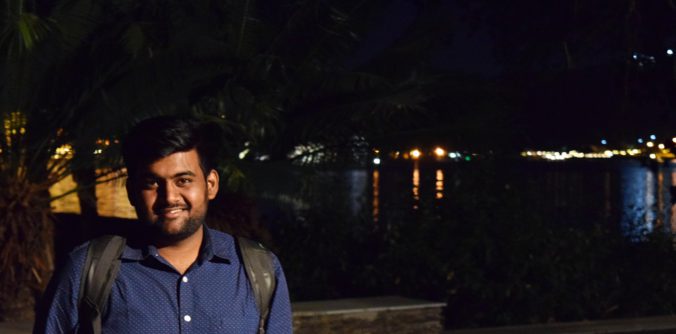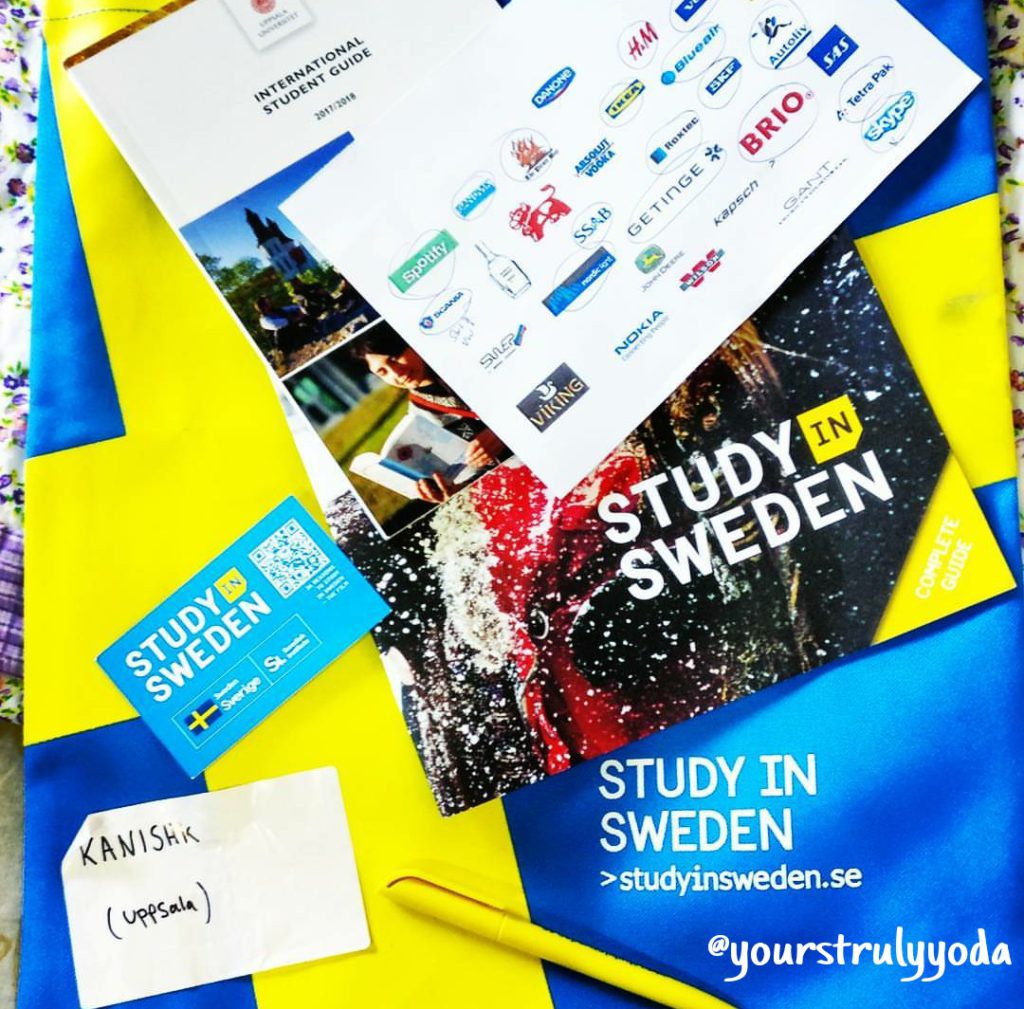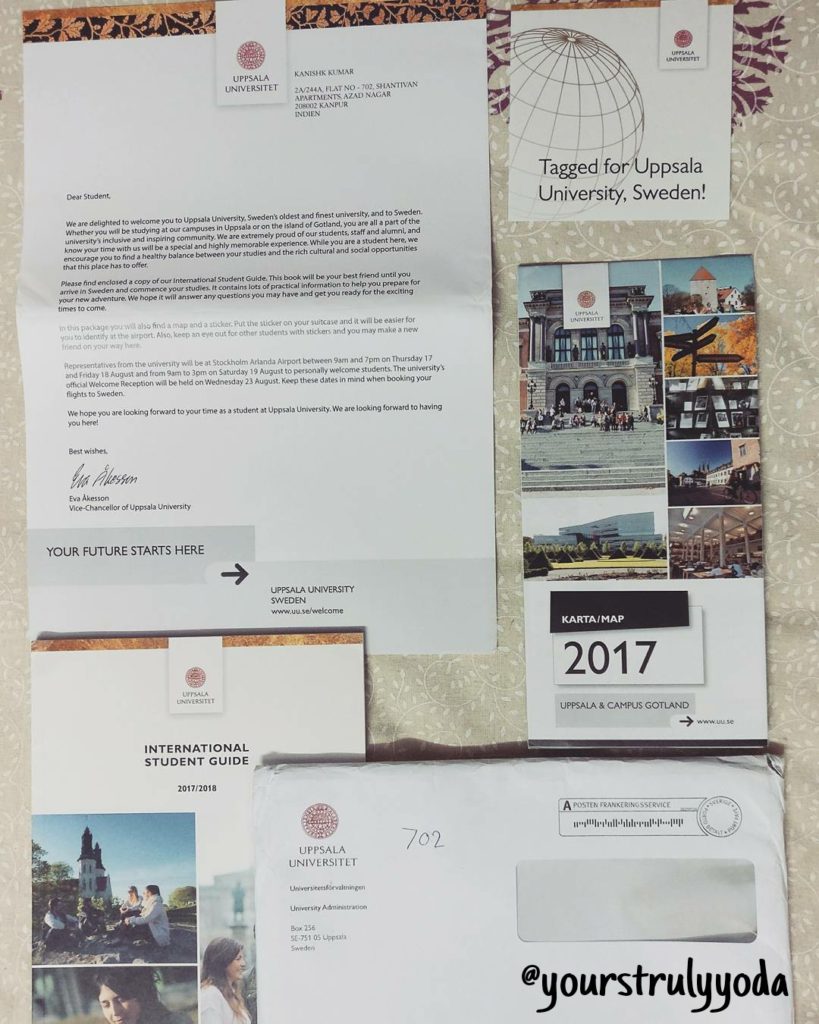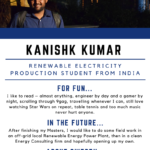Like many students in their final year of university, I was faced with what seemed like the fork in Frost’s famed divergent road: finding gainful employment (good luck!) or applying to graduate school. The latter option, for me, felt most natural, since I’m one of those slightly odd people who loves conducting research and analyzing data in my spare time, pouring over dusty tomes in the library for hours on end, and taking detailed, color coded notes during lectures. With this in mind, I set aside my pile of job applications and cover letters last summer and began to search for the Master’s program best suited to my personal and professional goals.
Initially, I focused on American schools with highly rated, specialized programs corresponding to my research interests. Narrowing down these diverse interests to just one preferred field of study, however, proved more difficult than I’d initially anticipated, and one look at each of the program’s price tags left me hyperventilating over glimpses of my well-educated, albeit extremely impoverished future.
There had to be a better way. Sensing my frustration, a professor and mentor of mine suggested I consider graduate programs overseas. I wasn’t exactly opposed to the idea, having spent a semester abroad during university, but I was clueless as to where or how to begin the research and application process for foreign schools.
A quick google search for “graduate studies abroad” produced several thousand results and a variety of opinions on the subject. Unfortunately, being inundated by information didn’t seem to answer many of my questions. Even once I had decided on schools in Sweden and initiated the application process, I often felt alone and overwhelmed, since so few of my peers chose to pursue graduate school overseas and it seemed like a riskier, perhaps even foolish endeavor.
Does this scenario sound familiar to you? If you’re reading this post right now, you might be considering graduate studies in Sweden and looking for application advice or general guidance from fellow students. When I was in your shoes, I wish someone more experienced had come alongside me to debunk the following myths pertaining to graduate programs abroad:
- The application process is too complicated.
Multi-step? Yes. Complicated? No. You should definitely do your best to stay on top of deadlines and keep application materials well-organized, but the process itself isn’t any more involved or difficult than it would be for your typical American school. The most confusing aspect is that you might have to submit some documents online to Universityadmissions.se and others by mail to individual schools – that’s it.
Should you be accepted to a Swedish Master’s program, you will need to apply for a residence permit, a personnummer, and other identification and immigration documents (at a later date). Once again, if you keep track of all applicable deadlines and ensure your supporting materials are easily accessible and well-organized, everything is very straightforward.
- There won’t be programs applicable to my field of study.
You might be surprised! Swedish schools offer international Master’s programs in diverse disciplines – more than 980 programs are currently offered in English, many of which are highly ranked in terms of scope, content, and rigor.
Both one-year and two-year plans of study are available, each including compulsory and elective coursework and culminating in a research-based Master’s thesis. Thus, you are able to develop advanced theoretical and applied knowledge in your field, while also gaining increased familiarity with subjects pertaining to your specific research interests.
- My GRE score isn’t competitive enough.
Again, surprise! When it comes to the application review process, many Swedish schools take a more holistic approach than their American counterparts. I didn’t even sit for the GRE and the program to which I was accepted (MSc in Political Science) evaluated international candidates based on their undergraduate coursework (transcripts) and thesis.
These requirements do differ from one program to another, so be sure to check online or consult with your admissions officer for information specific to your application. As a general rule, however, don’t allow a less than stellar test score to hold you back. Put yourself out there, apply, and see what happens – worst case scenario, you’re told “no,” but you can always try again!
- I don’t speak any foreign languages fluently.
Speaking as an American, here – while fluency in more than one language is certainly a wonderful thing, there are plenty of reputable programs offered in English by schools outside the US. Uppsala University alone features nearly 50 English-language Master’s programs, with more than 80 different sub-specializations.
English is often sufficient for day-to-day life outside of the classroom, too – many Swedes speak and/or understand English quite well, so you needn’t worry about mastering Swedish prior to your departure or facing a severe language barrier upon arrival.
That being said, knowing at least the basics of the primary language in your host country makes long-term integration much easier. There are numerous web-based resources readily available to those interested in studying Swedish, including the Swedish Institute’s free distance learning course. For even more practice, try browsing news articles on Swedish-language websites or listening to radio programs streamed online.
- It’s too expensive.
If you’re thinking primarily about the cost of living, you might be correct in this assessment – sometimes, you’ll have to budget a little more for food and rent and transportation while studying overseas than you would in your hometown. Generally speaking, however, I’ve found that it’s actually far more affordable to pursue a Master’s diploma abroad than it would be in my home country.
One year of tuition for an American program relevant to my field of study, for example, demands a jaw-dropping $39,000. This doesn’t cover books, rent, food, or transportation costs (particularly inconvenient if you have to purchase and maintain a car due to non-existent or unreliable public transit infrastructure).
In contrast, thanks to a generous tuition scholarship from Uppsala, I’ll only be paying $36,000 total for a two-year program (including living expenses and related costs/fees) AND I’ll be able to fulfill a lifelong dream of living abroad, immersing myself in a new language and culture.
- I don’t know anyone.
This is intimidating, I get it – I’m not the most outgoing person by nature and few things make me feel as nauseated as does forced small-talk with strangers. If you’d told me several years ago that I’d pack up my entire life into 80 lbs of hand luggage and move across the ocean on my own, I would have laughed in your face and called you crazy. That just wasn’t “me.” Yet here I am, preparing to embark on my second solo-stint in a foreign country, and I’m a little nervous, yet exponentially more excited.
Living on your own might be a huge step outside of your comfort zone, but the opportunities for personal growth are endless. Besides, in a university setting, you’ll be surrounded by fellow international students who can easily relate to what you’re going through (and who will likely become your new best friends!).
Few experiences teach you more about yourself, your worldview, and your limitations and strengths than several years spent studying or working abroad… if you’re anything like me, you’ll discover that you know far less than you once assumed, yet you’re far more competent and confident than you ever could’ve imagined.
- Employers won’t consider a degree earned abroad valuable.
Last, but not least, it’s seems to be a common perception that employers in your home country will hold degrees earned abroad in low esteem. Perhaps local universities are also trying to steer students away from foreign schools, citing accreditation concerns, inferior rankings, and return on investment figures.
Educational standards do vary, even among institutions within the same country, so evaluating diverse schools on the same sliding scale is often impossible; however, depending on the program, numerous international institutions have an excellent reputation, emphasizing collaborative research and faring very well in global rankings.
While factors like rankings and name recognition are certainly important to consider, and vital to positioning yourself for future success in some fields, I would argue that an international education is especially attractive to many employers in today’s globalized society. Not only are you exposed to new material and teaching methods in a foreign classroom, but you’re also introduced to a new culture and way of life.
By pursuing a graduate education abroad, you’ll meet a diverse range of people, gain independence, learn to appreciate nuances in language and culture, and develop a global, more informed perspective on your area of study, your home country, and the world at large. (Check out these statistics on international education and employment prospects, if you need even more encouragement!)
Best of luck in your future endeavors, wherever they may take you, and if you have any questions about studies in Sweden (or life in small-town Texas), feel free to reach out and say hej 🙂
Margaret







Recent Comments